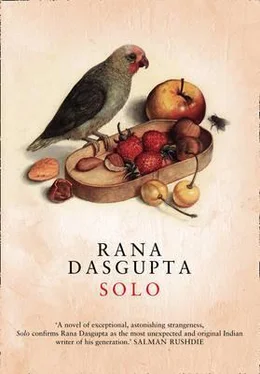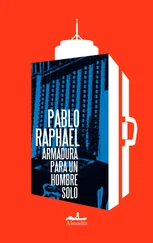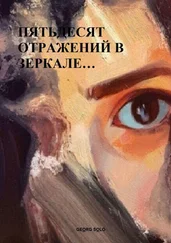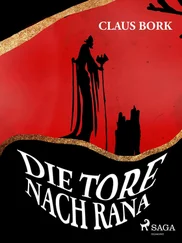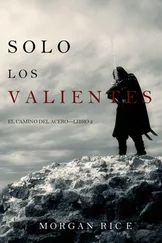Boris’s music began to torment Plastic. He stopped his ears in the streets, trying to shut out the radio play, the endless replays of bars and restaurants. They had turned his music into a public neurosis. As if they could absorb it only by beating it to death.
Item
The newspapers reported that two eastern European men who had entered the United States as part of Boris’s road crew had been arrested for drug trafficking. Pavel Alexandru, twenty-eight, from Constanta in Romania, and Vladislav Penkov, twenty-four, from Plovdiv in Bulgaria, were accused of bringing substantial quantities of MDMA into the country from the Netherlands. One journalist wrote:
Organised crime is the fastest growing sector of our economy. Hyper-violent criminal gangs from the Caribbean, eastern Europe and Latin America are taking over our cities, while international criminal organisations, as wealthy as the very largest corporations, are buying off our politicians and judges. We should not doubt the power of these organisations to infiltrate the glitz and glamour of our entertainment industry. Major celebrities move easily around the world without attracting the attention of security men, and they are a natural vehicle for international crime .
In their official statements, however, the police emphasised that Boris himself was not involved with these activities.
Item
The CEO of Universal said,
‘Are we going to let him attend, or not?’
‘He’s the brightest star this company has,’ said Plastic. ‘Not sending him would be suicide.’
The CEO had lost interest in Plastic’s opinions, and did not reply.
‘I agree with Plastic,’ said somebody else. ‘We can’t pull an artist like that out of the Grammy Awards. He’s nominated in every category there is. We’d look like idiots.’
‘The song that made this guy most famous,’ said the CEO, ‘we had no hand in. We don’t own it, and we’re not making money from it. So you tell me: how can we put him forward as our guy in the awards?’
‘I know we all wish that song had never happened. But let’s just admit it is a gorgeous piece of music. You can’t take that away. It’s like Louis Armstrong singing “Wonderful World” — you just can’t argue. Everybody loves it. We put that guy up in the Grammys and it knocks everyone else out of the park.’
‘How did that song get away from us?’ said the CEO. ‘Can someone remind me how the fuck that one got away?’
Item
When Irakli came home, the radio was on in Khatuna’s room and her door was open. She was standing naked in front of her mirror. Her dark hair fell tousled down her back, and above the curve of her buttocks was tattooed a terrible black eye.
She was shooting video of herself with her phone.
Irakli was paralysed with confusion. He crept out of the front door, walking backwards, undoing his steps. When he came back, later, he was careful to make a lot of noise.
Khatuna was dressed. She was putting on make-up. There was welding going on outside, and shadows kept flashing on the ceiling.
‘Where are you going?’ asked Irakli.
‘We’re going to a casino,’ said Khatuna. ‘I want to gamble. Tonight I want to drink and gamble like a falling empress.’
‘People never win in casinos. They win once, and then they give it away.’
‘I’m not going there to win,’ said Khatuna. ‘I’m going to lose. I’ll take Plastic’s money and bleed it out on the tables.’
‘What has Plastic done?’
‘Nothing! Plastic is not capable of doing a fucking thing.’
She had drawn Cleopatra flourishes on her eyes, and her lipstick was wild. She turned away from the mirror.
‘No man will ever be Kakha,’ she said. ‘All my life I will be in mourning.’
Irakli said her secret name, silently and to himself. He thought she looked like a whore.
Item
Irakli’s book of poetry was complete. He laid the manuscript on the table. He did it with some ceremony, and the parrot said, Dinner is ready!
‘ Androgyne ,’ proclaimed Irakli, reading out the title. For his book began with lost bliss: when creatures were whole, before they were separated into yearning halves of men and women. On the title page was a quotation from Plato:
When a person meets with his other half, the actual half of himself, he is lost in an amazement of love and friendship and intimacy. The two don’t want to spend any time apart from each other. These are the people who pass their whole lives together; yet they could not explain what they desire of one another. No one can think it is only sexual intercourse that they want, that this is the reason why they find such joy in each other’s company. It appears to be something else which the soul evidently desires and cannot tell, and of which it has only a dark and doubtful presentiment .
For a moment, Irakli was distracted by the pig, which was sitting by his chair, staring at him. Sometimes the animal was uncanny. Irakli stared back at it. He thought, You’re the oldest creature I know. You’re only a few months old, and everything is ancient about you .
He opened the manuscript and began to recite the book aloud. He read from beginning to end. Somewhere along the way he went silent, and read in his head.
It became dim in the room as he went through, and when he had finished he rubbed his eyes from the strain.
Nauseous waves flowed over his skin, like an oil spillage in a mustard field. He tossed the manuscript on the floor and covered his eyes with his hands.
His book was completely worthless.
20
BORIS STOPS OFF to buy a car. It is impossible to get anywhere in Los Angeles without one, and they are going to be there for several days. He chooses a blue convertible, and puts it on his credit card.
Irakli sits in the passenger seat. Boris says,
‘I used to drive a tractor on the land, and sometimes an old Lada, while we still had gasoline. But never on roads like this.’
He is wearing sunglasses to cover up a black eye.
There are poor people all around. There’s an old man singing in a baby carriage, and scabby children passed out on air-conditioning vents. Skeletal women with bulging eyes are motioning to the traffic, trying in vain to sell themselves.
‘Khatuna’s going insane, knowing I’m out here with you,’ says Irakli.
‘Your sister doesn’t know what friendship is,’ says Boris. ‘She’s never experienced it herself and it makes her insecure.’
They drive for a long time in silence. Irakli looks drained, and has little to say. Gas stations announce themselves with fluttering pennants, like fairgrounds. There are palm trees, and the largest houses they have ever seen, and pale people staring out. They imagine they will chance upon some inviting destination. They imagine they will see places to stop. But they find nothing of the sort, and finally they drive back to the hotel.
When Boris’s first award is announced, Plastic seizes him with unfeigned delight. Enmity is forgotten, for Plastic never stopped believing in the music. He removes Boris’s violin deftly from his hand and pushes him into a funnel of smiling, clapping people.
Boris’s own music plays at excruciating volume through the speakers, but it has become unrecognisable. It has become military. He is passed from usher to usher, and propelled on to the stage. A tall woman hands him a trophy, a gold gramophone player, and puts a mike to his mouth. He looks at the audience head on, so many, the sweeping lights brown through his sunglasses.
The woman’s teeth are like beacons.
‘Boris, you have such an amazing story.’
Her voice does not come from her. There is the impress of a million eyes, and his name is sprinting on the screens over his head.
Читать дальше
Конец ознакомительного отрывка
Купить книгу
